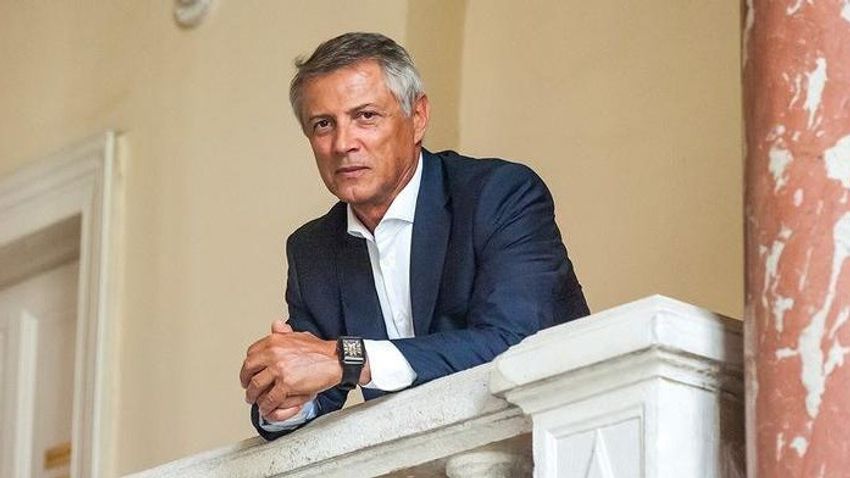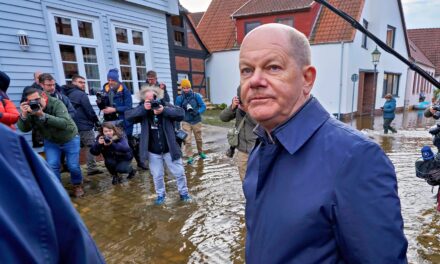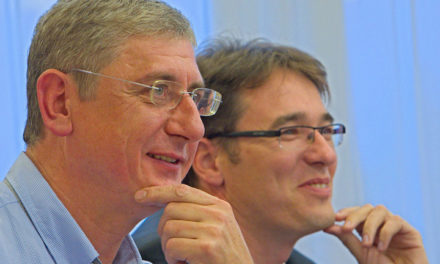Berlin, December 2023: two men in their thirties are talking in Arabic on the bus. "We have to get rid of everyone, because our time has come," says one, not even a whisper. "Perhaps not from those who convert to Islam," responds the interlocutor. "From them, too, because they are white," replies the determined man.
2015: somewhere along the southern border of Hungary, a single woman pushes forward, leading her five children, one of whom is visibly ill with a fever. To the question of the reporter who is wandering about why he is trying non-stop to go to Europe, not even giving his sick child a rest, he answers: "So that there are more of us."
1526, Hungary: near Mohács, Sulejmán I's soldiers destroy the II. Our king Louis led a Hungarian army - not supported by Europe - to split the Kingdom of Hungary into three parts for 150 years. When the invaders could finally be driven out, they left behind devastation, depopulated villages and cities.
Looking at the photos taken in Berlin, Paris, Stockholm and many other big European cities in the morning after the current New Year's Eve, one gets the impression that all the shots were taken in the same place, only different city names were signed. The sight is that the streets are filled with thousands of men in their 20s and 30s, among whom you can't see any "whites" to use the words of the immigrants, and there are no women among them at all.
On the other hand, there is triumphant jubilation, which is not New Year's Eve merriment, but rather the intoxication of victory. Europe has already been defeated, at least with regard to New Year's Eve, because the majority of the natives were forced to say goodbye to the New Year in their apartments instead of on the streets.
Those who ventured out could easily have ended up like the 745 burned cars in France, which the French Minister of the Interior was able to say was good news, since last year ten percent more cars were destroyed on New Year's Eve at the hands of gangs raging on the streets. Of the examples listed above, this last one is the most terrifying. So what should a native European do under these circumstances in the face of another conquering campaign? All over Europe - even in our country - many people reassure themselves and try to give exemptions, saying: "Of course there are jihadists, but most of the arrivals are peaceful immigrants." In contrast, the New Year's Eve skyline and events reveal something else.
It is possible that in time, in order to accept the reality, all truly well-intentioned Europeans will have to learn Arabic, so that they can hear with their own ears what the "peaceful" occupiers are talking about us among themselves, not only on the buses in Berlin.
It must be acknowledged: the attack on our usual life is not a refugee issue, not immigration, but an invasion in combat formation. They came with clear, unambiguous goals, which even an uneducated woman with many children, who otherwise has second-order rights in their world, knows. "We came to be more of us." The European political leadership – detached from the facts – takes stock of the events of the past few days according to a completely different logic. They state with relief that they managed to get through another New Year's Eve without a mass catastrophe. The armed forces, numbering in the tens of thousands, are ordered back, not to the borders - to prevent the further advance of the attacking army - but to the barracks. Because they think calm has returned to the streets.
Officials of the German government, for example, report with swelling breasts that at least 130,000 deportation requests have been mailed out in order to maintain legality. Oh well, but the deportees celebrated with their companions on the night of the party obliviously, as they had no idea that they should be hiding in the depths of the curtained apartments, and not German citizens with identity cards.
I strongly suspect that there will be no real solution to the unsustainable conditions in 2024 either. Maybe because it hasn't been 150 years since 2015? So what is the task, the task or the consequence of everything? The fact is: the streets cannot be reclaimed in the short term. On the one hand, because of their culture, immigrants spend a lot of time outdoors. Another more important reason is that the citizens of society work during the day, for example, to support the crowds of immigrants who fill the streets with merriment. Thus the circle was closed, since the ten percent who live on our continent but represent a different culture dominate the European living space of the ninety percent. If Süleymán I had known this five hundred years ago! You don't need a saber or a lead cannon here, you just have to walk in, as the collaborating politicians will clear the obstacles out of their way.
Then how to proceed? As an experiment, we could try a new approach to complying with the law.
If, say, 130,000 people who arrived illegally and who are suspected of crimes were sent out, they must be escorted out of Europe. At the same time, to guarantee with strongly protected borders that there is no way for them to return or for new illegal arrivals to enter.
Since the named stakeholders have already disappeared in the crowd supporting them, then 130,000 people who do not have papers, jobs and other official documents - i.e. illegally staying in Europe - must be gathered from the streets and deported. Just as they relate to our laws, our culture and our humane treatment. And if those left out of the 130,000 contingent for the time being would protest indignantly at the injustice committed against their blood, then the remaining fifty million could be offered the opportunity to leave freely – without coercion. At the same time, we could finally make it clear that the rules of the game are changing, because ninety percent of Europeans have taken up the gauntlet thrown before them, and we are asserting the power of our numerical superiority according to the will of our past and ancestors.
We are not giving Europe away, as we fought for it five hundred years ago.
The author is a secret service expert and chairman of the board of trustees of the Protected Society Foundation
Featured image source: Mandiner













